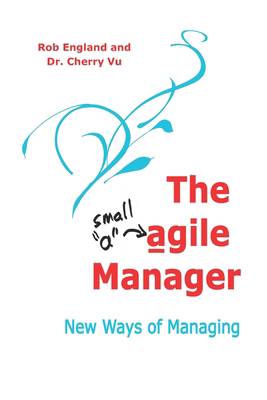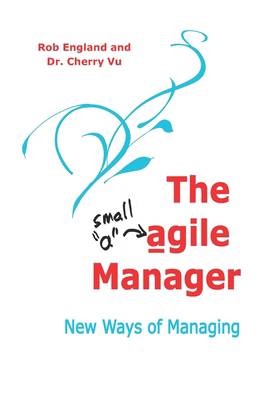
- Afhalen na 1 uur in een winkel met voorraad
- Gratis thuislevering in België vanaf € 30
- Ruim aanbod met 7 miljoen producten
- Afhalen na 1 uur in een winkel met voorraad
- Gratis thuislevering in België vanaf € 30
- Ruim aanbod met 7 miljoen producten
Zoeken
Omschrijving
The world is in a permanent state of change. We must work in new ways. To change the work we must change how we manage; how we think about management. What got you here won't get you there. There are new ways of managing which are changing business, government, and not-for-profit organisations, big and small. ¶We are excited to announce the general availability of our new book The agile Manager (small "a"), in paperback and ebook. This book is about the impact of these new ways on management in the modern enterprise - how to change your ways of managing. Learn more here http: //www.twohills.co.nz/tamc. ¶Too often, management views the advancement (we don't like "transformation") to New Ways as something done to improve the practitioner workforce, not management. This can't be. For an organisation to change, the management must change. This is one of the biggest issues facing organisations moving to new ways of working. Managers must understand and focus on empowerment, collaboration, agility, and flow. Why do we focus on management? Because we see it often neglected, and because it is the key. ¶The book has four sections: 1. A set of principles which you as an agile manager must get your head around in order to function in the new world. 2. A set of management practices which follow from those principles. 3. A set of agile work practices that you need to understand and support. 4. Guidance on the journey to new ways of working.¶It is our personal offering. We hope you like it and derive value from it. Join our community and tell us how you felt about it. ¶There is a suite of new ideas transforming work: Agile, Safety Culture, servant manager, transformational leader, complex systems, sustainability, and more... They all aim for "better value sooner, safer, happier". We simply call them the New Ways of Working, or Human Systems Agility. Along the way, Agile is resurfacing (and standing on the shoulders of) the ideas of Lean, which ironically go back pre-second-world-war; and Agile is drawing on the principles of complex systems and the modern understanding of human behaviour and social constructs.¶Human: Conventional management too often treats people like clerical workers, like plug-compatible wetware, like Human Resources, who can't be trusted, who are evaluated numerically, who are an overhead to be minimised, who need to be told what to do and how to do it - which is not conducive to satisfaction and mental health. The new thinking empowers people to be knowledge workers, to design the work and make the decisions. It treats them like they are over 18 and on the same side. ¶Systems: Value flows from work in complex networks of co-creation. The systems are complex: unknown, unpredictable, organic in behaviour, requiring experimentation and innovation. Complex systems cannot be changed directly: we can only create the conditions for them to adjust. We need courage - zero risk is impossible. Failure is the path to success, a rich source of value if we welcome failure instead of punishing it.¶Agility: The Agile way is iterative, incremental, experimenting, exploring complex systems. These are displacing the ideas of conventional enterprises: big-bang projects; zero risk; certainty and accuracy; plan once execute perfectly; failure is not an option. ¶The new ways are challenging: they overturn principles on which we have based our careers. This book will confront you with those challenges, explain them, and show you how to move forward to new ways of managing.¶At first sight, these ideas can seem insane, impossible, plain wrong. Stick with us while we make sense of them for you, and show how you can apply them. If you understand these ideas and embody them in your unthinking behaviour as a habit, then you are a new manager, the agile Manager.
Specificaties
Betrokkenen
- Auteur(s):
- Uitgeverij:
Inhoud
- Aantal bladzijden:
- 328
- Taal:
- Engels
- Reeks:
- Reeksnummer:
- nr. 1
Eigenschappen
- Productcode (EAN):
- 9781794400566
- Verschijningsdatum:
- 7/02/2019
- Uitvoering:
- Paperback
- Formaat:
- Trade paperback (VS)
- Afmetingen:
- 152 mm x 229 mm
- Gewicht:
- 439 g

Alleen bij Standaard Boekhandel
+ 51 punten op je klantenkaart van Standaard Boekhandel
Beoordelingen
We publiceren alleen reviews die voldoen aan de voorwaarden voor reviews. Bekijk onze voorwaarden voor reviews.











